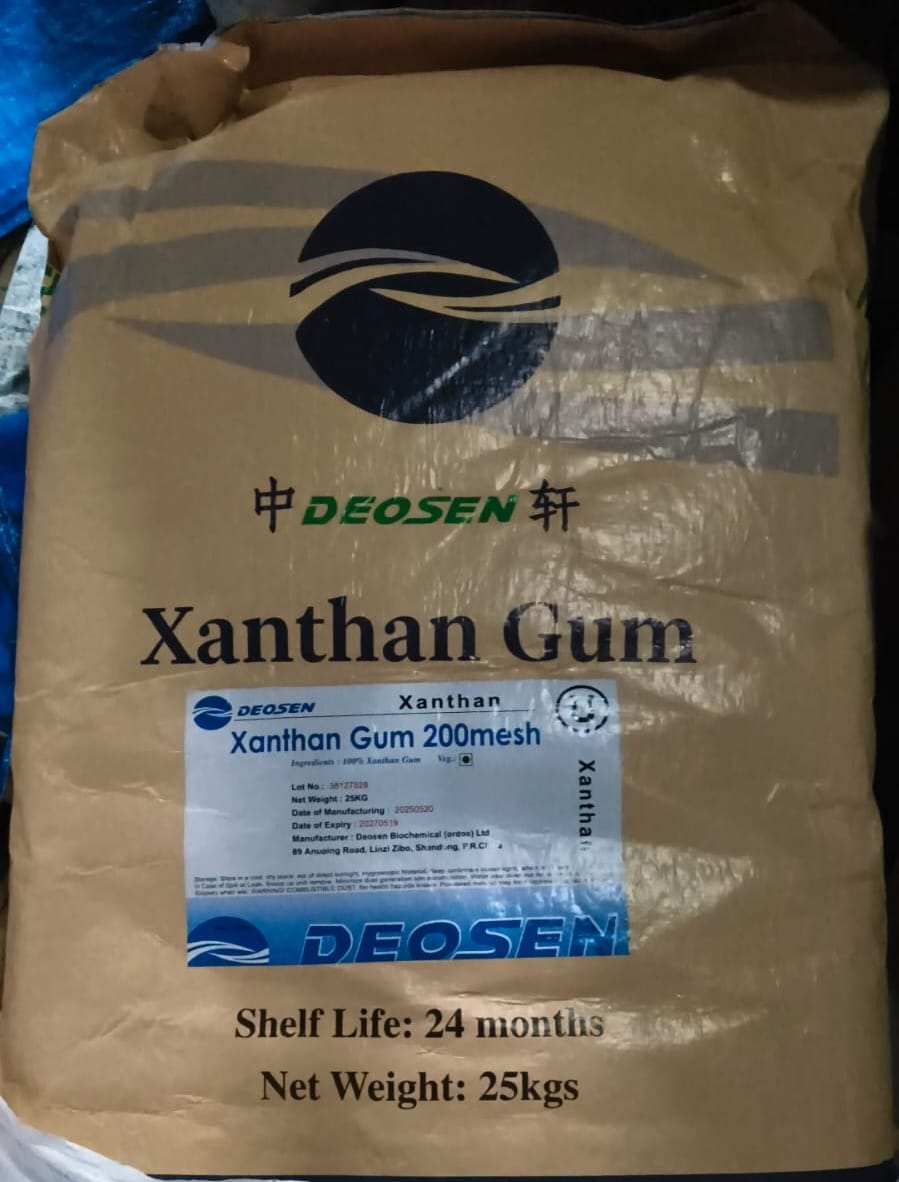
Xanthan Gum Powder
Technical Grade 99%
₹215.00
Xanthan Gum is a chain of sugar building blocks. Xanthan Gum is used in foods and industrial products as a thickening agent, emulsifier, and stabilizer. Common uses include improving the texture of sauces, providing structure in gluten-free baked goods, and preventing ice crystals in ice cream. It also has applications in cosmetics, pharmaceuticals, and oil drilling.
Technical specifications of Xanthan Gum:
Chemical and Physical Properties:
Chemical Name: Xanthan gum
Molecular Formula: (C35H49O29)n
Appearance: Off-white to light yellowish powder Particle Size: Typically 80 mesh pH (1% solution): 5.5-8.5 Viscosity: Specifications vary by application, but it provides high viscosity at low shear rates.
Identifications:
CAS Number: 11138-66-2
Properties of Xanthan Gum:
Solubility: It readily dissolves in both cold and hot water but is generally insoluble in most organic solvents.
Emulsifying and Suspending Abilities: It acts as a stabilizer, helping to prevent ingredients like oil and water from separating in emulsions and keeping solid particles suspended in a liquid.
Synergistic Effects: When combined with other gums, such as guar gum or locust bean gum, it can produce significant synergistic thickening and gelling effects.
Pseudoplasticity: Solutions of xanthan gum exhibit pseudoplasticity, meaning they are thick and viscous under normal conditions but become much less viscous when a force is applied (shear).
Immediate Recovery: The viscosity returns immediately once the shearing force (like stirring or shaking) is removed, making it easy to mix and pump.
Heat Stability: Xanthan gum solutions are very stable across a wide range of temperatures.
pH Stability: It maintains its viscosity and stability in both acidic and alkaline solutions, a property useful in many industrial applications.
Freeze/Thaw Stability: Xanthan gum solutions are resistant to breakdown during repeated freezing and thawing cycles.
Salt Tolerance: It remains stable and does not "salt out" in solutions containing high concentrations of salt.
Enzymatic Stability: Xanthan gum is highly resistant to enzymatic degradation, which contributes to its shelf life.
Uses and Applications of Xanthan Gum:
In Food:
Thickener: It adds viscosity to thin liquids, making sauces, gravies, and soups smoother and richer.
Emulsifier: Xanthan gum helps blend oil and water-based ingredients in products like salad dressings and mayonnaise.
Stabilizer: In dairy products and frozen desserts, it prevents ingredients from separating and forms a consistent texture.
Gluten-Free Baking: It mimics the elasticity of gluten, giving baked goods a softer texture and better structure.
Low-Calorie/Fat Foods: Provides a creamy texture to low-fat and sugar-free foods without adding fats or sugars.
In Other Industries:
Cosmetics: It is used to thicken and stabilize products like water gels.
Pharmaceuticals: Investigated for use in tissue engineering.
Industrial Applications: Thickens drilling fluids for oil and gas drilling and is added to concrete to prevent washout in underwater pouring.
Hazards of Xanthan Gum:
Xanthan gum is generally safe in typical food amounts, but high doses can cause digestive issues like bloating, gas, and increased bowel movements. Inhaling the powdered form can lead to respiratory irritation and potentially worsen conditions like asthma. People with severe allergies to corn, wheat, or soy may react to xanthan gum, and it should be avoided by premature infants and people with certain gastrointestinal conditions, such as fecal impaction.
Packaging: 25 Kg. Bag
MOQ: 25 Kg.
Estimated Lead Time: 1 day
"in stock"
